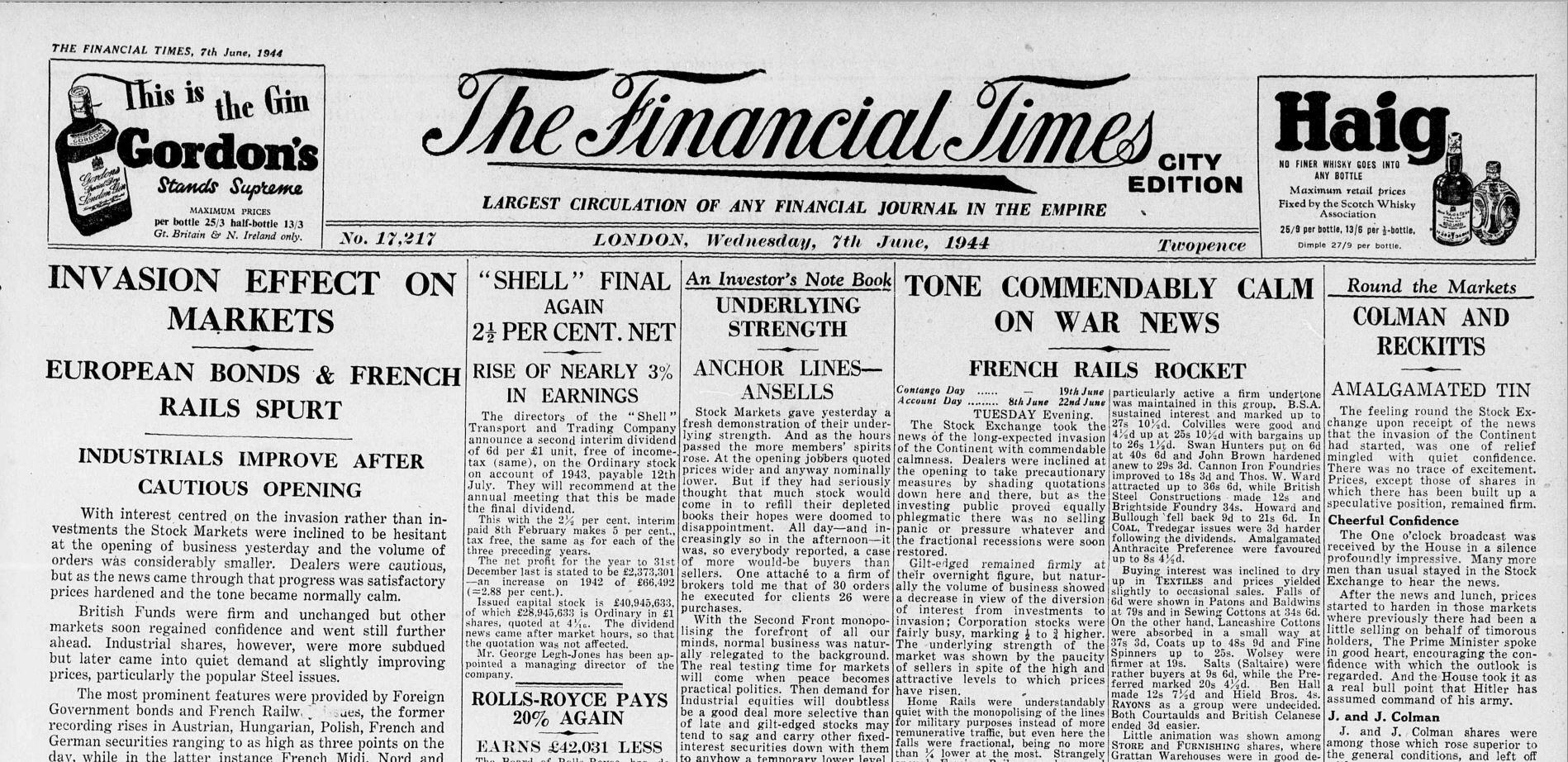How the Journal covered the June 6, 1944, Allied invasion of Europe. The World-Wide column, similar to today’s, covered the momentous news, and there was a lead article on the economic impact. Today in WSJ History, June 7, 1944....MOREI don't have any technical help today and can't figure out how to embed the document viewer so head over if you want to look. Meanwhile, one of the stories that day was on raising the debt limit and cutting the 'Caberet Tax'.
Here's a 2013 Journal story on that tax:
How the Taxman Cleared the Dance Floor
Thanks to a 'cabaret tax,' millions of Americans said goodbye to Swing Music. A lot fewer said hello to bebop.
These are strange days, when we are told both that tax incentives can transform technologies yet higher taxes will not drag down the economy. So which is it? Do taxes change behavior or not? Of course they do, but often in ways that policy hands never anticipate, let alone intend. Consider, for example, how federal taxes hobbled Swing music and gave birth to bebop.With millions of young men coming home from World War II—eager to trade their combat boots for dancing shoes—the postwar years should have been a boom time for the big bands that had been so wildly popular since the 1930s. Yet by 1946 many of the top orchestras—including those of Benny Goodman, Harry James and Tommy Dorsey —had disbanded. Some big names found ways to get going again, but the journeyman bands weren't so lucky. By 1949, the hotel dine-and-dance-room trade was a third of what it had been three years earlier. The Swing Era was over.
Dramatic shifts in popular culture are usually assumed to result from naturally occurring forces such as changing tastes (did people get sick of hearing "In the Mood"?) or demographics (were all those new parents of the postwar baby boom at home with junior instead of out on a dance floor?). But the big bands didn't just stumble and fall behind the times. They were pushed.In 1944, a new wartime "cabaret tax" went into effect, imposing a ruinous 30% (later merely a destructive 20%) excise on all receipts at any venue that served food or drink and allowed dancing. The name of the "cabaret tax" suggested the bite would be reserved for swanky boîtes such as the Stork Club, posh "roof gardens," and other elegant venues catering to the rich.But shortly after the tax was imposed, the Bureau of Internal Revenue offered this expansive definition of where it applied: "A roof garden or cabaret shall include any room in any hotel, restaurant, hall or other public place where music or dancing privileges or any other entertainment, except instrumental or mechanical music alone, is afforded the patrons in connection with the serving or selling of food, refreshments or merchandise."The tax hit not just swells, but anyone who liked to go out dancing—which in those days included just about everyone who went out at all....MORE
If you've visited the Dow Jones empire here's a nice comparison, the Financial Times of that Wednesday June 7:
How the FT reported the D-Day landings in 1944. We are nothing if not focused on our core mission...always. pic.twitter.com/cEIVRmgEU7
— Financial Times (@FT) June 5, 2014
